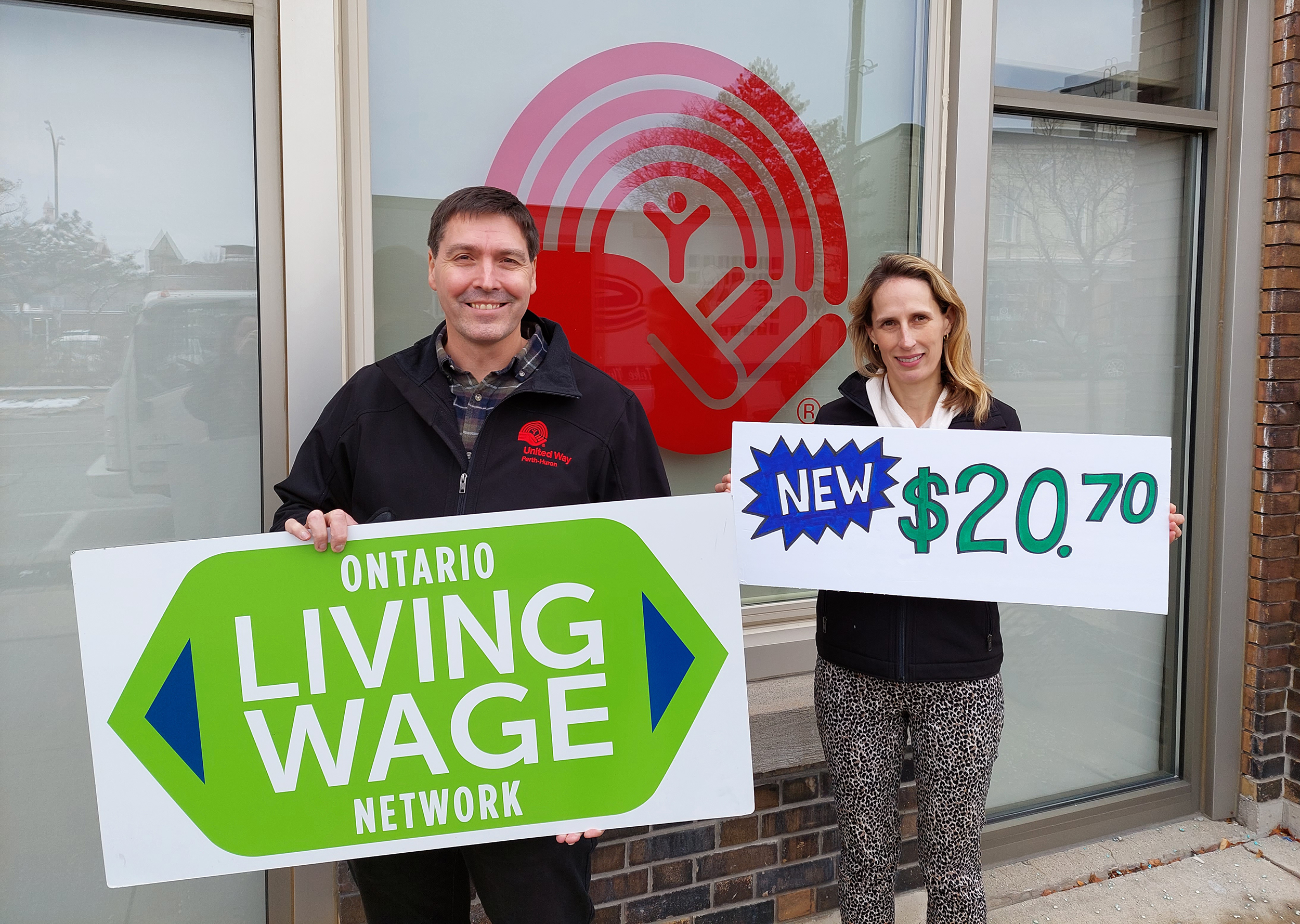STRATFORD – Living Wage Week in Ontario runs Nov. 14-18, and United Way Perth-Huron’s (UWPH) Social Research and Planning Council is announcing the new living wage of $20.70 an hour, up from $17.95 just one year ago.
“More than ever, it’s important that communities engage in a discussion around the concept of a living wage,” says Kristin Crane, director of social research and planning. “As we’re seeing, prices are increasing across the board. That means workers need to earn more to keep pace with economic pressures and to thrive, not just survive. The living wage reflects the realities of living in a community much better than a minimum wage does.
“For workers in our region, if they’re relying on a job paying minimum wage, a person would be short about $728 per month as far as covering expenses. That’s a huge gap, and why the living wage is so important.”
Based on a 35-hour work week, the Perth-Huron living wage was calculated using local data and considered the living expenses of a weighted average of family types including a family of four, a single mother supporting a seven-year-old child and a single adult, once government transfers and deductions were taken into account. Everyday expenses in the calculation included food, housing, utilities, clothing, childcare and transportation. For more information about Perth-Huron’s living wage, visit perthhuron.unitedway.ca.
“We also understand that businesses face obstacles in the current climate,” said Crane. “It’s a struggle for many, so the idea of paying employees more when there are so many pressures may seem counterintuitive. But when we talk with organizations that have certified we’re hearing a living wage helps reduce turnover and improves recruitment and productivity thanks to higher morale and less fatigue because workers don’t need multiple jobs to make ends meet.
“So on a very practical level, a living wage is improving the outlook for employers even if it initially seems like a difficult transition to make.”
“In the end, this is another facet of helping make sure there’s a brighter future waiting for all members of our community,” added UWPH Executive Director Ryan Erb. “Poverty is the larger issue that informs so many others, from homelessness to mental health challenges to intimate partner violence. That’s why UWPH wants to keep the living wage at the top of people’s minds.
“If we want a better, fairer, and more welcoming community, the living wage is another tool in our toolbox to use to make sure that as we continue to build back, it’s equitable and inclusive for all our community members.”



